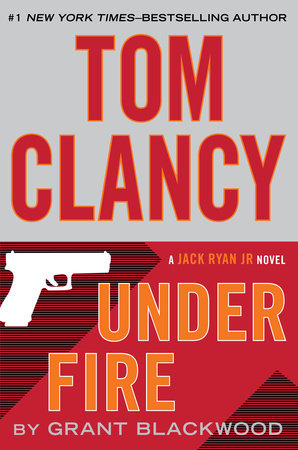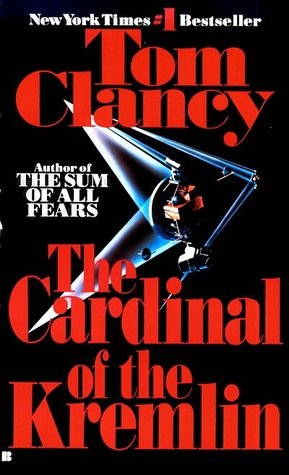I've been a fan of the Fantastic Four since I was 8 or 9 (a 'lotta years) so I was looking forward to the new Fantastic Four movie. I actually liked the last two movies ("Fantastic Four" and "Rise of the Silver Surfer") as they captured something of the essence of the comic. I even liked the "never released" Corman FF movie (1994 - to maintain the rights to the FF, a movie had to be done by date X - apparently Corman didn't know they had no intention of releasing the movie).
 I was pretty open-minded about the re-boot - I don't typically read reviews because the movies I typically like (comedies and super-hero movies) don't perform well with critics anyway.
I was pretty open-minded about the re-boot - I don't typically read reviews because the movies I typically like (comedies and super-hero movies) don't perform well with critics anyway.The good:
I didn't mind the casting, nor the basic outline of the story. It starts early, with elementary school Reed and Ben, and ends soon after an accident transforms them into the Fantastic Four. This is a little out of kilter with the comics (Reed and Ben met in College, Doom was an arrogant fellow student), but it worked out OK. This movie is more based on the Ultimate Universe characterization of the Fantastic Four than the 616 Version (the Ultimate Universe was a re-created universe around the year 2000 to re-start characters in Marvel without the "baggage" of 40 years of history - e.g. a fresh take on Spider-Man, Fantastic Four, X-men, Avengers ("The Ultimates" in the Ultimate Universe) - and it was a pretty good idea, until Marvel killed it over a few summers, including this one).
Kate Mara as Invisible Girl/Woman (not sure if they actually named the characters in this movie) was a nice take on the Ultimate Universe version where Reed and Sue met at a special school for gifted students housed at the Baxter Building in Manhattan. Her brother Johnny was played well by Michael B. Jordan who captured the adventurous Johnny before (and after) the accident.
 |
| FF (2005) - 1st Movie (post Corman) |
The Thing was done well - the look and tone were good. The character could have been developed better (see below).
 |
| FF (2007) - 2nd Movie |
The Unnecessary and Bad.:
Michael B. Jordan (Human Torch) is black, his sister Kate Mara (Invisible Girl) is white, and their father Reg. E. Cathey (Franklin Storm) is black. In 2015, I think that is enough, however Sony must have thought a mixed-race family needed explanation, so they had a very out-of-context discussion between Reed and Sue where Reed assumes Sue is adopted, which proves to be the case. Seemed really unnecessary, and forced an odd speech from Dad reminding Sue that family bonds matter when he felt Johnny was making dangerous choices.
 |
| 1994 - not released Corman FF movie |
In addition to the adopted relationship between Sue and Johnny/Franklin Storm, they also marginalized Ben Grimm for much of the movie. He has a small roll in Reed's elementary school experiements (basically helping him steal equipment from the Grimm family recycler), but basically disappears before there is much bonding going on, and he misses all the development of the older Reed making his scientific breakthroughs.
Thus, it seems gratuitous to call Ben in the middle of the night to join the adventure. Why would the rest of the team be OK with endangering someone who has no business being there? Why would there not have been a more suitable addition (e.g. Sue, or one of the many techs who run around in the background)?
The discovered dimension and the energy fields are OK to cause the accident that created the Fantastic Four, and the wish to be first before NASA gets involved and sends our new astronauts to explore the dimension is OK (though not strong) as a reason to sneak to the other dimension.
As the characters weren't fully developed (e.g. hints at Victor and Sue having a past, early Sue and Reed chemistry, Ben looking longingly at Sue on first meeting her) it is difficult to care much about the relationships after the "event".
Spoilers:
It is unfortunate that Sony chose to have Ben and Johnny train to be soldiers - not particularly out of context and a nice fit to the universe they are in, but Ben, in particular, is shown killing in war zones. A key component of Ben Grimm in the comics is his unwillingness to be a "monster" and the great lengths he goes to to not kill/maim. If he was forced into this role in the movie, they should have played up the angst, maybe threatening to kill/imprison the others or something. Without that threat or rationale, he actually is more like the monster that he should be rebelling against. The "we are looking for a clue" and "Reed left" are too weak to support being used as an assassin.
Similarly, Ben should be having mixed feelings about Reed - lifetime friendship, feeling that he was put into danger (unknowingly), betrayed that Reed fled.....which should be causing him great angst, rage and confusion (which occurred various times in the comics).
When the team leaves a seemingly dead Doom in the other dimension, they don't really seem to care... a little - "We have to go back" and "Come on Reed" and Doom's is abandoned. This guy was not an enemy, nor was he even portrayed as a big ass like he was in the Marvel comics - he was a co-worker and fellow genius - they should have felt bad, and maybe gone to jail for taking an un-authorized trip into danger, while intoxicated, and killing a team-mate - presumably a problem.
The movie felt long - checked watch a few times, which is odd. The "backstory" was very long and the action was very short. What was most disappointing was the weak motivation for Doom to want to destroy the earth - he had some displayed arrogance and felt there was a generation that was dooming the planet that should be held responsible for their actions (which fits great with Doom as potential Emperor of earth), but does not explain what he gained by destroying the earth and living as the only person in the new dimension. Having "more power" when you are alone and already control the planet makes no sense - there weren't hints of other worlds to conquer, or other dimensions to search where being super-powered would be advantageous. Even if he was cherry-picking people to save onto his newly created world to start over (e.g. create a pseudo-earth with the "chosen people" where Doom reigns), there would have been motivation that worked - the FF would save "our" earth from being swallowed into the new one.
From an audience member perspective, I found the movie slow, and the resolution (e.g. the defeat of Doom) was very quick - he harnesses the power of a planet, but just buries Reed, Ben and Johnny in rocks and forgets about them - they each get out (without any teamwork) or interaction, and each punches Doom and he falls into the planetary siphon, seemingly dead.
There wasn't much interaction between the FF and Doom, even though they had worked together pre-accident very closely, no apology for thinking him dead in the new dimension, no promise to work to heal him..... Again, Sony seemed to miss the point of the FF as a family, and did not replace it with anything else (e.g. no big action scenes, no "we've lost and we're hurting, lets work together and bring down this guy"...no "last chance Doom - we can work together, don't force us to work against you" ).
I don't particularly regret watching the movie - it was OK. With the budget and special effects, paying a few dollars for a script would have made it a much better movie - more in line with the Avengers franchise Marvel is building. I must say, though, "not regretting" is a pretty low bar, and faint praise for a movie.
Sequel? As I said, I liked the casting and the basic outline - Sony can work to make a better plot, the cast, effects etc. will play out nicely. Not much to go on from this movie - they need to do some basic character work to make the next movie more interesting. Had they taken the time in movie 1, movie 2 could start on action right away. Right now, I'm not sure if a seemingly dead Reed or Sue would affect the other characters very strongly - Franklin Storm's death didn't seem to be the big "Why, Why, Why....." motivation to give the extra boost to overcome adversity - it wasn't particularly mentioned by his children.







